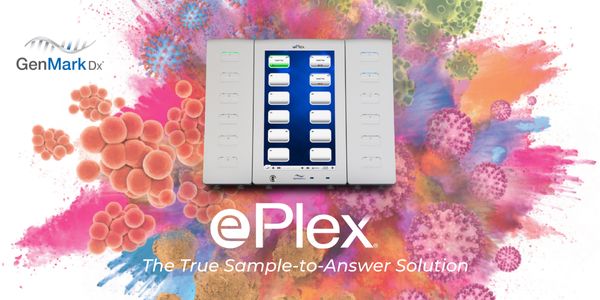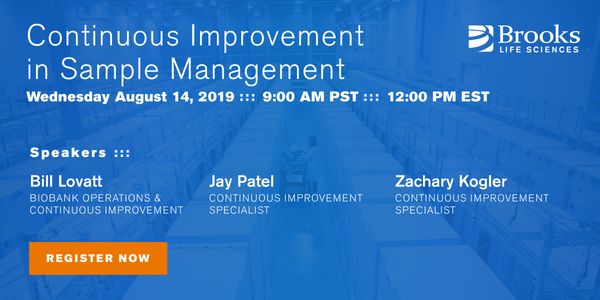APR 16, 2020 | 9:00 AM
DATE: April 16, 2020 TIME: 9:00am PT, 12:00pm ET There is an increasing need to evaluate and understand unique phenotypes and mechanisms of action within the tumor microenvironment. Existing...
APR 07, 2020 | 8:00 AM
DATE: April 7, 2020 TIME: 8:00am PT, 11:00am ET This webinar sets out to establish why quality control is key to robust, reliable, reproducible science. We will look at best practice criteri...
DEC 05, 2019 | 9:00 AM
DATE: December 5, 2019TIME: 9:00am PST, 12:00pm EST Characterization of the spatial distribution and abundance of proteins and mRNAs with morphological context within tissues e...
Over the last decade, the policy and regulatory trajectory of genomic and reproductive technologies has been a checkered one. Approaches around the world range from constitutional and crimina...
OCT 02, 2019 | 11:00 AM
DATE: October 2, 2019TIME: 11:00am PDT, 2:00pm EDT Ditch the Excel spreadsheets and manage your molecular workflows entirely in your LIMS Achieve configuration of molecular workf...
AUG 14, 2019 | 9:00 AM
DATE: August 14, 2019TIME: 9:00am PT. 12:00pm ET Implementation of Lean Methodology in Biobanking Operations to standardize sample management processes is effective. Each proce...
JUL 30, 2019 | 6:00 AM
DATE: July 30, 2019TIME: 6:00am PT, 9:00am ET The current version of the EMA Guideline for the environmental risk assessment of human drugs was published in 2006. This guidance...
JUN 26, 2019 | 9:00 AM
DATE: June 26, 2019TIME: 9:00am PDT, 12:00pm EDT An excessive number of software solutions are available to help manage your clinical, biobank, or biorepository sample inform...
FEB 26, 2019 | 9:00 AM
DATE: February 26, 2019TIME: 9:00am PST, 12:00pm EST In an era of increasingly high-throughput, large-scale biology, with companies, government and non-prof...
FEB 05, 2019 | 9:00 AM
DATE: February 5, 2019TIME: 9:00am PST, 12:00pm EST CloudLIMS.com is pleased to invite you to attend a complimentary webinar. The webinar focuses on the importa...
DEC 12, 2018 | 7:00 AM
DATE: December 12, 2018TIME: 07:00am PST, 10:00am EST Currently, the Cleveland Clinic Biorepository is an assembly of several biobanks tog...
NOV 08, 2018 | 5:00 PM
DATE: November 9, 2018 TIME: 09:00am CST, 10:00am JST, 12:00pm AEDT Perso and precision medicine are rapidly growing areas that require good data to categoriz...
DATE: October 25, 2017TIME: 08:00am PDT, 11:00am EDTAs we learn more about the implications of genetic variation in 21st century medicine, the utilization of genotyping as a molecular t...





















